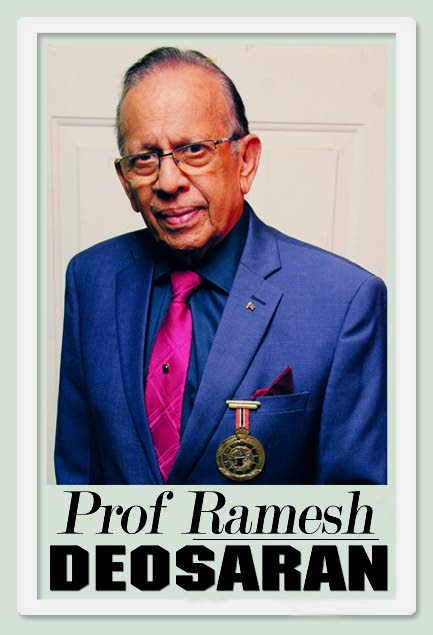From 7-7 to general election

During the recent local government elections, Kamla Persad-Bissessar’s UNC campaign crowds tempted exciting predictions, pushing the PNM into retreat.
PNM political leader Dr Keith Rowley, however, changed his campaign style, recovering to share a 7-7 municipal corporation tie. He admitted, “It could have been worse.”
The UNC’s reported popular vote of 173,961 as against the PNM’s 130,868 and the subsequent recounts tell a big story about Westminster politics, which both leaders seem to like.
“We have to work harder towards 2025,” promised Ms Persad-Bissessar. That is, if a succession crisis doesn’t arise, as UNC member Larry Lalla, SC, and Dr Devant Maharaj ponder.
Why didn’t Ms Persad-Bissessar’s major campaign planks – anti-property tax and “stand your ground” – work as fully expected?
The daily headlines had almost everything going against the PNM – from crime, the economy, food prices, governance, traffic to potholes and broken infrastructure. It looked like licks.
But Dr Rowley again used corruption allegations, questioned UNC-NTA credibility and neutralised their “no tax” platform.
He pulled a campaign strategy by confidently sitting on a white sofa, looking reasonable, explaining to his party faithful and the population all the “benefits of local government reform” and how the UNC is not supporting it. No noisy, fragmented platform speeches. Him alone, with a focus.
Why are the August 14 turnout results so similar to those of 2019 – 34 per cent voting and 66 per cent not voting?
And with such heavy, expensive campaigning, nothing much changed. High expectations, even bragging and bluster, are now being rationalised. Is “race” the heavy anchor? Are the politicians missing something?
There are really three levels in our ethnically-driven political system. Briefly, the first is the ground level, where, for example, in the market, everybody buys and sells to everybody. Or in transport, where everybody travels with anybody and anybody picks up everybody. Ethnic identity is present but silent and unprovoked.
The second level is in the competition for political power, the provocative process through which tax-paying patronage, privilege and resource distribution chiefly occurs. The politician skilfully arouses partisan identity by codes or references to the deprivations – real or perceived – of his or her constituency. This is a reaction in anticipation that the “other side” will do it – the psychological root of our political culture, firmly embedded. Latent historical suspicions and mistrust stand on notice.
The third level is what the national anthem and many commentators and letter-writers like Errol Benjamin, Reginald Dumas, Clyde Weatherhead, Rex Chookolingo and Steve Alvarez tirelessly dream about – a society with improved governance, social justice, compassion and equal opportunity.
This will not happen soon, mainly because of the second level – political expediency for ethnic support and social welfare votes. It will take a long struggle and civic sacrifice to change.
There is, however, a group of popular perceptions which resist campaign penetration. Smart politicians should not be deaf to these. It is how the population at large thinks about politicians, especially those in office or campaigning for office.
Six of the common political perceptions about politicians are:
1.”Dem politicians only care ‘bout demselves.”
2. “All ah dem is de same ting.”
3. “We does only see dem coming at election time.”
4.”Dey only dey to fill dey pockets.”
5. “Yuh only get help if you know de minister.”
6. “Voting is a waste of time.”
That’s how many of the 66 per cent think. The 34 per cent still have some faith.
There have been loud complaints of a “divided society.” Since the 1956 election, however, this country has always been divided with partisan rhetoric, especially with the 80 per cent voter turnout then.
The 1961 election, with an 88 per cent turnout, was noisier and more divisive when the Democratic of Labour Party (DLP) brought mathematician Dr Rudranath Capildeo to challenge historian Dr Eric Williams’ PNM.
After that, general elections experienced turnouts mainly in the 60s except for the no-vote campaign in 1971 (33 per cent). Given the voter turnout from 1956 to now, it appears that whether high or low turnouts, the PNM wins, except on four occasions when it faced a formidable opposition alliance containing at one time or another the leadership likes of ANR Robinson, Basdeo Panday, Lloyd Best, Karl Hudson-Phillips, Winston Dookeran and David Abdulah.
The UNC-NTA grouping is not yet near such a force in substance or leadership.
The lesson still to be properly learnt, however, is why each collapsed afterwards.

Comments
"From 7-7 to general election"